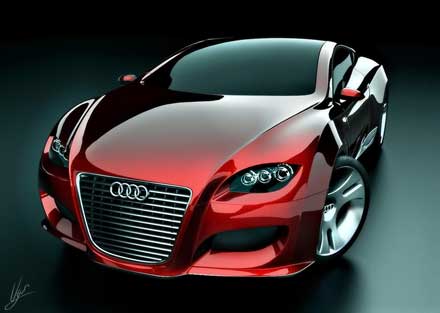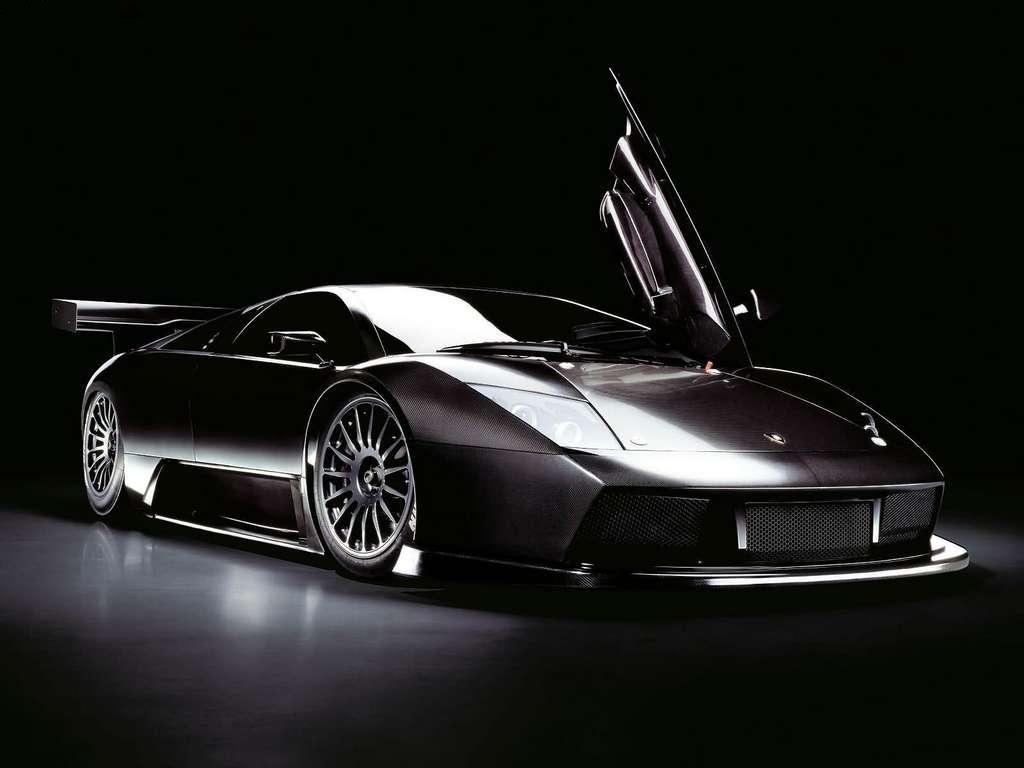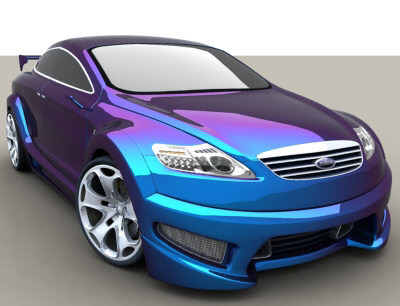 In October, Porsche will launch the new 911 GT3 RS in Europe while sales for the North American market will start from March 2007.
In October, Porsche will launch the new 911 GT3 RS in Europe while sales for the North American market will start from March 2007.The GT3 RS is distinguished by its performance capability and an unadulterated driving experience similar to that of a racing car. But while particularly suited for use on the track, the car also meets all requirements for road-legal sports cars.
The reference "RS" will quicken the pulse of Porsche connoisseurs. Models such as the legendary Carrera RS 2.7 of 1972 and the 1991 Type 964 911 RS were also sports cars that stood out on account of their extreme degree of maneuverability and handling. That tradition is continued with the new 911 GT3 RS. In common with its predecessors, it provides an homologation model for use in a range of racing series.

 The powerful, normally aspirated engine boasts a displacement of 3.6-litres to generate 305kW (415 bhp) at 7,600rpm. Maximum revs are reached at 8,400rpm. The power output per litre of engine capacity is 115.3 bhp. These figures are shared with the recently-announced 911 GT3, but bespoke drivetrain components in the RS ensures it puts in an even better performance. Thanks to a close-ratio six-speed transmission with a single-mass flywheel and 20kg lower vehicle weight, the engine revs up even more freely, thus enabling the 911 GT3 to sprint from zero to 100kph (62mph) in 4.2 seconds. That's one tenth of a second faster than the GT3. And it takes just 13.3 seconds to hit to 200kph (124mph). Maximum speed is 310kph (187mph).
The powerful, normally aspirated engine boasts a displacement of 3.6-litres to generate 305kW (415 bhp) at 7,600rpm. Maximum revs are reached at 8,400rpm. The power output per litre of engine capacity is 115.3 bhp. These figures are shared with the recently-announced 911 GT3, but bespoke drivetrain components in the RS ensures it puts in an even better performance. Thanks to a close-ratio six-speed transmission with a single-mass flywheel and 20kg lower vehicle weight, the engine revs up even more freely, thus enabling the 911 GT3 to sprint from zero to 100kph (62mph) in 4.2 seconds. That's one tenth of a second faster than the GT3. And it takes just 13.3 seconds to hit to 200kph (124mph). Maximum speed is 310kph (187mph).
One characteristic of the new RS is the body, which is 44mm wider at the rear (a legacy from the Carrera 4 models with which it shares its shell) by comparison with the 911 GT3. The muscular-looking rear end conceals a wider track that not only improves directional stability but also increases the potential cornering grip of the two-seater coupe.

 Despite its specialised body, the RS is 20kg lighter than the GT3, weighing in at just 1375kg. This weight-saving was achieved by the use, amongst other solutions, of an adjustable carbon fibre wing, the use of a plastic rear lid and a lightweight plastic rear window. As a consequence, the corresponding engine power to kerb weight ratio is over 300bhp per tonne.
Despite its specialised body, the RS is 20kg lighter than the GT3, weighing in at just 1375kg. This weight-saving was achieved by the use, amongst other solutions, of an adjustable carbon fibre wing, the use of a plastic rear lid and a lightweight plastic rear window. As a consequence, the corresponding engine power to kerb weight ratio is over 300bhp per tonne.
With a view to the registration regulations for the important GT motor racing championships as future fields of application, the road version of the GT3 RS features technical attributes that will also appear in the racing version. These solutions will include the design of the entire wheel carrier and split wishbones on the rear axle, in addition to the carbon fibre components of the body.
The interior of the 911 GT3 RS lives up to the vehicle's sporting aspirations: two lightweight bucket seats made of carbon fibre composite materials come as standard, together with a bolted-in roll cage and pre-wiring for a battery master switch. A six-point seatbelt for the driver and a fire extinguisher are also provided. Internal trims are black, with the roof lining, steering wheel and gear stick trimmed in high-quality Alcantara leather.


 The available exterior paint finishes are Arctic Silver metallic or Black; as an option, the GT3 can also be obtained in Orange or Green. All vehicle insignia and the wheels themselves are styled in orange or black to contrast with the body paintwork.
The available exterior paint finishes are Arctic Silver metallic or Black; as an option, the GT3 can also be obtained in Orange or Green. All vehicle insignia and the wheels themselves are styled in orange or black to contrast with the body paintwork.
The retail price for the 911 GT3 RS is £94,280, including a Porsche Vehicle Tracking System (VTS), a sophisticated vehicle security package approved to Thatcham Category 5 standard, and a Porsche Driving Experience programme.
The basic price for the 911 GT3 RS is €111,600 (excluding country-specific requirements). In Germany, the coupe costs €129,659 including sales tax. The GT3 RS will also be available for sale on the North American market from March 2007.
 Technorati Tags: Porsche, 911+GT3, RS, autos, auto+news, press+release, images, pictures, automobile, automotive, cars
Technorati Tags: Porsche, 911+GT3, RS, autos, auto+news, press+release, images, pictures, automobile, automotive, cars









